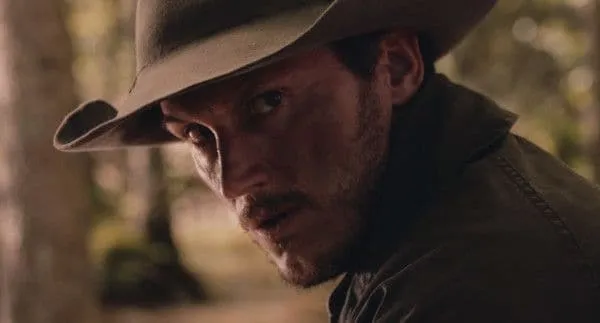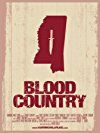Eye For Film >> Movies >> Blood Country (2017) Film Review
Blood Country
Reviewed by: Jennie Kermode

In Lawrence County, Mississippi, in 1884, a man was shot to death out in the woods. This might not have been seen as remarkable, but it stuck in local memory because the prime suspect was the man's brother. Travis Mills' latest film dramatises this local legend and explores the consequences for those caught up in the incident both before and after the fact.
Like many adaptations of true stories, the film is episodic, spanning several years and shifting its focus between different groups of characters, though the local sheriff (played by Cotton Yancey) is a significant presence throughout. As it's set just two decades after the Emancipation Proclamation and shortly before the introduction of the Jim Crow laws that would return many African Americans to a similar state of vulnerability, the shadow of racism is ever present in the background. We see it first in small things - a white man's assumption that he can co-opt two teenage black boys when he wants assistance; their father's wariness; the terror the boys feel when they witness events that may relate to the central crime. Though later events reveal more explicit racist violence, it's this deep sense of unease that sets the tone of the film.

Like Mills' Phoenix-set drama Durant's Never Closes, released last year, Blood Country benefits from the talents of cinematographer Nicholas Fornwalt, but the outdoor locations give Fornwalt a lot more flexibility and he works particularly well in collaboration with costume designer Brooklyn Wilde. With a colour palette built around brown, pink and yellow, the film has a very distinctive look that gives it something of the quality of myth despite fitting with the styles of the time. There's a romantic quality to it which can easily charm the viewer and distract from the fact this really is the Wild West - a place where the rule of law is a fragile thing and savage violence could erupt at any time.
That violence is not confined to obvious criminal elements. Vigilante action remains a potent force, placing the sheriff in a position where abiding by the law incurs the wrath of those who voted him into his position - a situation that reflects a number of true stories from the period. Nobody manages to remain morally pure in a landscape where the simpler things look, the more dangerous they are, like the snake we see early on, hiding in the bushes. It's harmless if undisturbed, but civilising this land is not compatible with apathy.
Snakes and fratricide point, of course, to religious notions, but religion is not heavily present in the narrative. At one point a newspaper story touches on the newly published theory of evolution; it's puzzling to the readers but inspires no existential concern. Life here is much more focused on the immediate, the practical, and what is necessary for survival.
Much stronger thematically than narratively, Blood Country is an interesting depiction of frontier life at a pivotal time in American history. It's beautiful to look at but doesn't shy away from the darkness.
Reviewed on: 02 Oct 2017

















